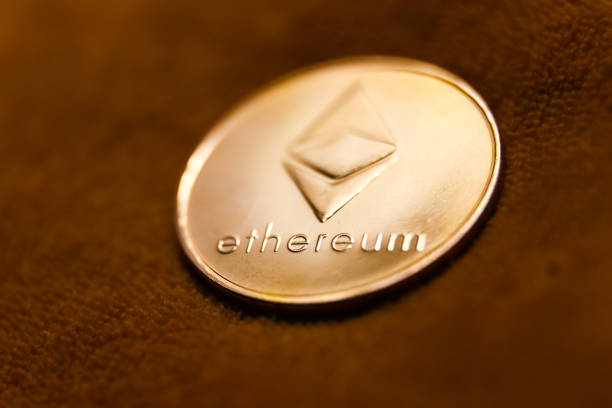Introduction:
If you want to know what is Cryptocurrency, how Cryptocurrency Works, and How To Buy Cryptocurrency? then this article for you
What is Cryptocurrency?
Cryptocurrency refers to a form of currency that manages the generation of units and relies, on encryption methods to safeguard transactions. Unlike systems, where intermediaries like banks play a role transactions in cryptocurrency take place directly among users on a decentralized peer, to peer network.
Cryptocurrencies are available, for purchase and sale through cryptocurrency exchanges. These platforms allow users to trade cryptocurrencies for currencies or conventional fiat currencies such as US dollars or Euros. Moreover, individuals often opt to invest in cryptocurrencies as a venture seeking profits from fluctuations, in their value over a given period.
Types of Cryptocurrency:
There are thousands of different cryptocurrencies in circulation, each with its own unique features, uses, and characteristics. Here are some of the most popular types of cryptocurrencies:
1. Bitcoin (BTC):
Bitcoin (BTC), a decentralized digital currency commonly referred to as a cryptocurrency, was developed in 2008 by a mysterious individual or group known as Satoshi Nakamoto and released in 2009. The breakthrough open-source software operates via a peer-to-peer network, enabling trade between participants without relying on third parties like banks. Blockchain technology stored on a public ledger records all Bitcoin transactions, ensuring both decentralized and transparent control of the currency.
The decentralization of Bitcoin permits users to gain financial freedom and privacy, while its scarcity – with a limited total supply of 21 million – makes it a deflationary asset. Growing attention and adoption has seen Bitcoin established as a medium of exchange, embraced by some countries, and used as a store of value and hedge against inflation.
Particularly volatile, the value of Bitcoin is determined by a variety of elements including demand, adoption, regulations, and investor sentiments. It can be purchased and sold on cryptocurrency exchanges as well as used for investment, remittance, and online payments. Nevertheless, investors should always take care when engaging with cryptocurrency, as the market is highly speculative and the regulatory system is evolving.
2. Ethereum (ETH):

Launched in 2015, Ethereum is a decentralized platform that enables the creation of smart contracts and decentralized applications (apps) on its blockchain. It uses a cryptocurrency called Ether (ETH) as its native token.
3. Ripple (XRP): Ripple (XRP) is a digital cryptocurrency and payment protocol created by Ripple Labs Inc. in 2012. It is designed to provide quick and secure cross-border transactions, making it a popular choice for financial institutions and banks. Unlike traditional cryptocurrencies like Bitcoin, XRP does not rely on a blockchain for transaction validation but instead uses the Ripple Protocol Consensus Algorithm (RPCA).
This algorithm provides faster confirmation times and greater scalability than blockchain-based cryptocurrencies. The native cryptocurrency of the Ripple network, XRP, can be used as a bridge currency for transferring value between different fiat currencies. Its primary purpose is to facilitate swift and cost-effective international transfers.
XRP stands apart from other digital tokens thanks to its low transaction fees, making it an attractive option for cross-border payments. RippleNet, Ripple’s payment protocol, links banks and financial institutions, enabling efficient transaction settlement. Notably, Ripple Labs, the company behind XRP, has come under regulatory scrutiny.
In December 2020, the United States Securities and Exchange Commission (SEC) took legal action against Ripple Labs, claiming the company had conducted an unregistered securities offering by selling XRP tokens.
This ongoing dispute has had a clear effect on the value and reputation of XRP in the cryptocurrency market.
Before investing in any cryptocurrency, including XRP, thorough research should be conducted to understand the related risks. Crypto markets are highly volatile, and the value of XRP can vary significantly. It is wise to consult with a financial advisor or conduct your own analysis before making any investment decisions.
4. Litecoin (LTC):
Experience the technological innovation of Litecoin (LTC)—a decentralized peer-to-peer cryptocurrency created in 2011 by former Google engineer Charlie Lee—praised as a “silver” to Bitcoin’s “gold”.
LTC distinguishes itself from Bitcoin by utilizing an alternative hashing algorithm called Scrypt, allowing for faster and more efficient block generating for users. Revel in the matter-of-fact yet crucial benefits of Litecoin—transactions in Litecoin are confirmed in merely 2.5 minutes, far more quickly than Bitcoin’s 10-minute block confirmation.
This upgrade allows for a wide range of use cases, such as everyday transactions, micro-payments, trading, and P2P transactions. The production limit of 84 million coins, which is four times that of Bitcoin, makes Litecoin even more approachable and scalable. Consequently, its popularity grows by the day, gaining the support of multiple cryptocurrency exchanges offering services for purchasing, trading, and other related operations.
Despite the monumental success and growth of Litecoin digital coins, it is important to use caution when managing them: highly volatile crypto-market prices require extra precaution when determining where and how to store them, not to mention attention to basic security practices. Be mindful of your funds and stay safe!
Experience the technological innovation of Litecoin (LTC)—a decentralized peer-to-peer cryptocurrency created in 2011 by former Google engineer Charlie Lee—praised as a “silver” to Bitcoin’s “gold”. LTC distinguishes itself from Bitcoin by utilizing an alternative hashing algorithm called Scrypt, allowing for faster and more efficient block generating for users.
Revel in the matter-of-fact yet crucial benefits of Litecoin—transactions in Litecoin are confirmed in merely 2.5 minutes, far more quickly than Bitcoin’s 10-minute block confirmation.
This upgrade allows for a wide range of use cases, such as everyday transactions, micro-payments, trading, and P2P transactions. The production limit of 84 million coins, which is four times that of Bitcoin, makes Litecoin even more approachable and scalable.
Consequently, its popularity grows by the day, gaining the support of multiple cryptocurrency exchanges offering services for purchasing, trading, and other related operations. Despite the monumental success and growth of Litecoin digital coins, it is important to use caution when managing them: highly volatile crypto-market prices require extra precaution when determining where and how to store it, not to mention attention to basic security practices. Be mindful of your funds and stay safe!
5. Bitcoin Cash (BCH): Bitcoin Cash (BCH), the cryptocurrency conceived in 2017 as a hard fork of the original Bitcoin (BTC) blockchain, encompasses a network striving to facilitate faster and cheaper transactions by tackling scalability issues and amplifying usability for everyday transactions.
The hard fork upgraded the block size from 1 megabyte (MB) to 32 MB, drastically reducing transaction fees and confirmation-processing times. It also bolstered a fresh community with separate developers and a distinct vision: that of a direct, peer-to-peer electronic cash system.
With BCH, people can purchase items online, send money to one another, and invest in a digital asset whose value is subject to market conditions.
In order to make the most of Bitcoin Cash, one must partake in due diligence by researching the digital currency’s risks and evaluating the security measures of any particular exchange or wallet.
6. Cardano (ADA): Launched in 2017, Cardano is a blockchain platform that is designed to be scalable, secure, and sustainable. It uses a cryptocurrency called ADA as its native token.
7. Binance Coin (BNB): Launched in 2017, Binance Coin is the native cryptocurrency of the Binance exchange, one of the largest cryptocurrency exchanges in the world.
These are just a few examples of the many different types of cryptocurrencies that are currently in circulation. Each cryptocurrency has its own unique strengths and weaknesses, and it is important to do your own research and understand the risks before investing or using any cryptocurrency.
How Cryptocurrency Works?
Cryptocurrency is a digital currency that uses cryptographic techniques to secure transactions and control the creation of new units. How it works is simple yet impressive.
Firstly, each block on the blockchain holds a number of transactions along with its unique cryptographic code, or “hash.” It further creates an unalterable record of all transactions.
Furthermore, to send or receive cryptocurrency, users need a digital wallet, which securely stores their private keys. Each time a user initiates a transaction, it is broadcasted to the network of nodes—a decentralized digital ledger—and is considered valid when the sender has enough digital assets to proceed with the transaction.
These transactions are further grouped with those pending confirmation and later included in the next block on the blockchain.
This block is made secure following an intensive and competitive process called the proof-of-work algorithm, where miners on the network attempt to solve a complex mathematical puzzle.
The first miner to successfully crack the puzzle is, as you can imagine, rewarded with new cryptocurrency coins added to their digital wallet.
This whole process—from broadcasting an initiated transaction until its successful confirmation—ultimately creates an impenetrable chain of transactions.
Each confirmed block and its contents are effectively safeguarded from any manipulation or fraud attempts, as it would require changing all subsequent blocks on the blockchain, which is nearly an impossible task.
How To Buy Cryptocurrency?
When you want to buy cryptocurrency follow these basic steps which are given below, but the exact process may vary depending on the exchange or platform you use. Here’s a general guide to buying cryptocurrency:
1. Choose a cryptocurrency exchange: There are many cryptocurrency exchanges available, so choose one that supports the currency you want to buy, has a good reputation, and is available in your country. Some popular exchanges include Coinbase, Binance, Kraken, and Gemini.
2. Create an account: Once you’ve chosen an exchange, create an account by providing your personal information, such as your name, email address, and valid ID.
3. Add funds: Most exchanges allow you to add funds to your account using a bank transfer or credit/debit card. Choose the payment method that’s most convenient for you and follow the instructions to add funds to your account.
4. Choose a cryptocurrency: Select the cryptocurrency you want to buy and enter the amount you want to spend. The exchange will display the current price and any applicable fees.
5. Complete the transaction: Review the details of your transaction, including the exchange rate and fees, and confirm the purchase. The exchange will then process the transaction and transfer the cryptocurrency to your account.
It’s important to note that buying cryptocurrency carries risks, including price volatility, regulatory uncertainty, and security risks. Make sure to do your research when investing in cryptocurrency.
How To Store Cryptocurrency?
Storing cryptocurrency securely is a crucial aspect of managing your digital assets. Below are some steps you can follow to store your cryptocurrency safely:
1. Choose a reliable wallet: You’ll need a digital wallet to store your cryptocurrency. There are different types of wallets available, including hardware wallets, software wallets, and mobile wallets. Choose a wallet that is reputable, secure, and suits your needs.
2. Create a strong password: When you create a wallet, make sure you use a strong password that is difficult to guess. Avoid using personal information, such as your name or birthdate, and use a mix of upper and lowercase letters, numbers, and special characters.
3. Enable two-factor authentication (2FA): Many wallets offer 2FA, which provides an additional layer of security to your account. Enabling 2FA requires you to enter a unique code generated by an authentication app or sent to your phone via text message before you can access your wallet.
4. Keep your private keys safe: Your private keys are used to access your cryptocurrency, so it’s essential to keep them safe. If you lose your private keys, you may not be able to access your funds. Store your private keys in a secure location, such as a hardware wallet or offline storage device.
5. Keep your software updated: Make sure your wallet software is up-to-date to ensure it has the latest security features and bug fixes.
6. Use a reputable exchange: If you’re buying or selling cryptocurrency on an exchange, make sure the exchange is reputable and has strong security measures in place. Don’t keep your funds in exchange for an extended period.
By following the above steps, you can help ensure your cryptocurrency is stored safely and securely.
However, the decentralized nature of cryptocurrency also means that it is subject to regulatory uncertainty, security risks, and volatility in value. It is important to understand these risks and to exercise caution when investing or using cryptocurrency.
Disclaimer: The financial and crypto market information provided on Blogbia is intended for informational purposes only and should not be construed as investment advice. It is highly recommended that you conduct your own research and seek guidance from financial experts before making any investment decisions. The decision to continue reading the content on this website is entirely at your own discretion, and it shall be understood as an express acknowledgment and agreement that Blogbia shall be released from any potential legal action or enforceable claims that may arise.






